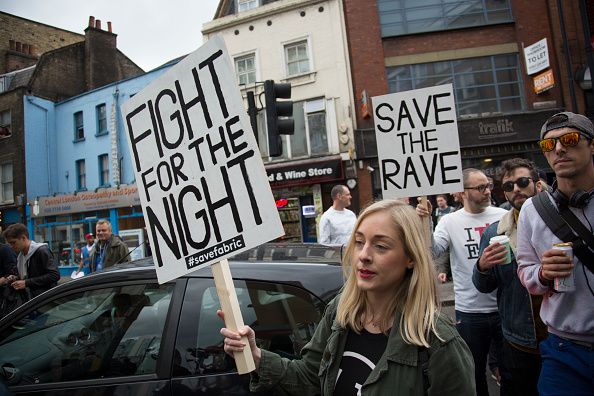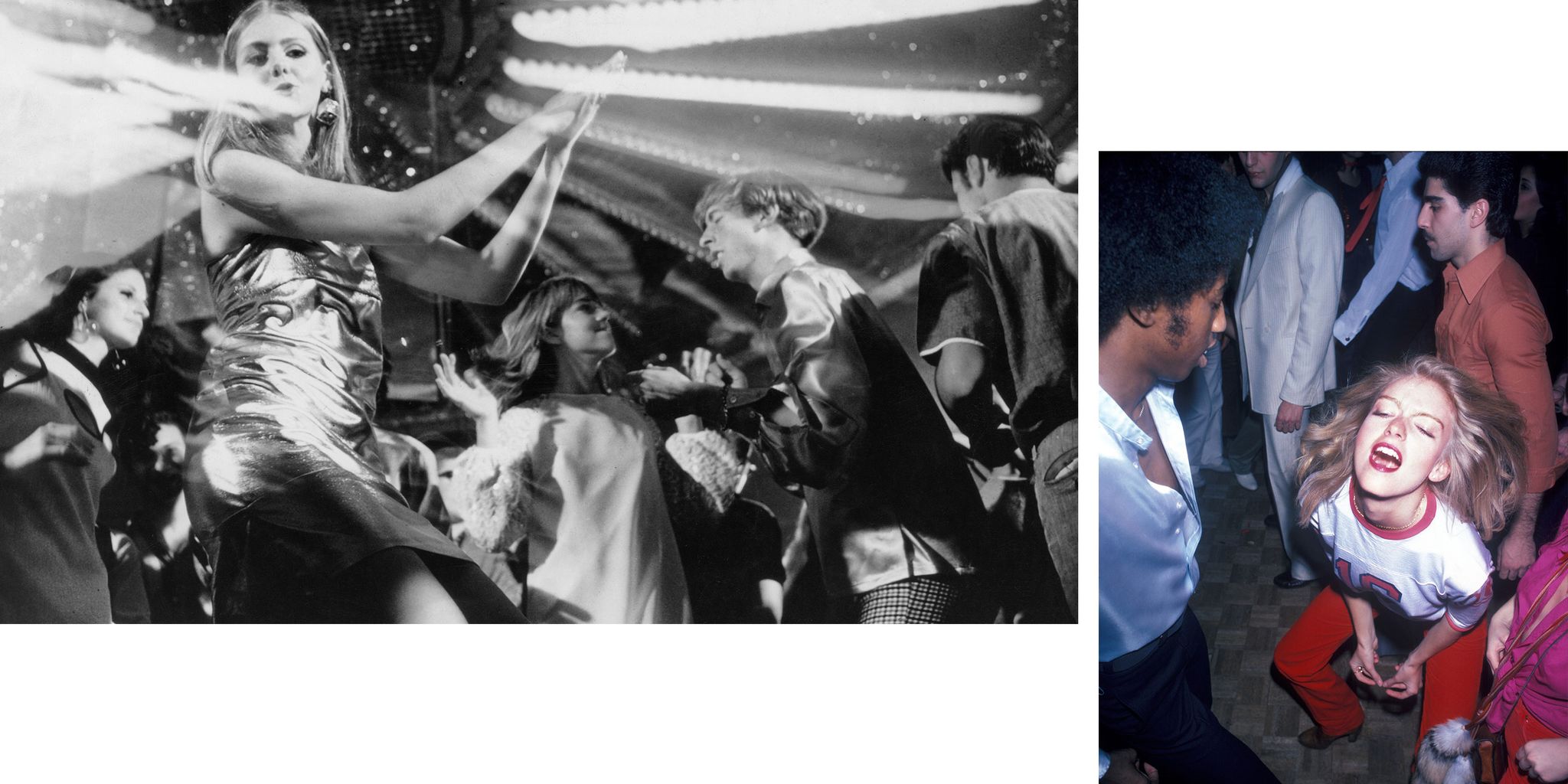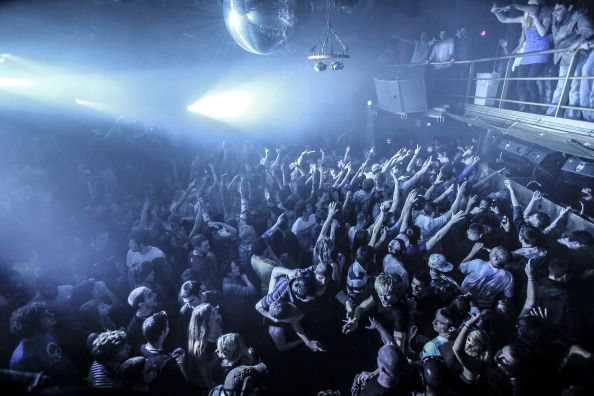A lot of ink has been spilled recently on the topic of Fabric nightclub's closure and how it signals the decimation of London's nightlife and counter-culture on the whole.
The decision by Islington council to revoke the club's license early this September, following the drug-related deaths of two 18-year-olds, sent shock waves through the clubbing community, with Fabric regular DJ Goldie even threatening to 'melt' his MBE following the decision, and put it in 'a pencil-pusher's coffee, so it can taste a little bit sweeter for him.' The cavernous former meatpacking house, which once played host to some of the country's best electronic music live acts and DJs, was something of a holy site for many- a 'religion', as DJ Goldie said solemnly.
Fabric is the last in a long list of victims to vullturuous property developers and councillors. Cable, Turnmills, Passing Clouds and Dance Tunnel are just some of the other popular clubs forced to close their doors to pave the way for more identikit luxury apartment blocks in recent years. What's more, it appears that this is the pattern across the country, with almost half of the UK's clubs shutting their doors within the last ten years.
The nightlife and clubbing industry is viewed by many as the nation's soft underbelly, an easy target for local councils who harp on about the drug problem and paint it as a crisis of clubs alone.
I ask Tom Stiedl, who's part of the team behind cafe-cum-record store-cum-club Rye Wax, whether he feels the climate towards the clubbing industry is particularly hostile at the moment. 'It's never been easy running venues in cities in the UK, with huge financial and legislative implications at every turn and the ever present threat of closure from sound complaints due to changing housing situations' he says. 'At Rye Wax we've always been a multi-purpose space, so in some ways we are pre-adapted to this new situation, but the pressure to make every element work is certainly being felt.'
It seems that nightclub owners and managers are increasingly having to adapt to expensive leases and stringent council enforcements, by being creative and savvy with their venues.
Jordan Gross, co-founder of London clubs Oval Space and The Pickle Factory tells me how part of the reason for their success is that they do 'a variety of events from weddings to live music to late night music to conferences', which ensures that they're 'not reliant on any one type of event to pay the bills.'
But, although the force of gentrification has unequivocally contributed to social cleansing in the capital, could there be another contributing factor towards this ongoing game of whack-a-nightclub, where clubs are being thrashed left right and centre as soon as they appear?
Recent reports have suggested that millennials, with their limited funds but limitless access to online entertainment, are increasingly opting to stay in. Could it be that we're now more apathetic towards clubbing on the whole?
I know that for me personally, the price of entry fees and the sting of an Uber receipt the next morning means I probably weigh up the pros and cons of going out versus staying in more than my parents ever did.
But Jordan doesn't think that the younger generation is more apathetic at all. 'That's just not a reality that we see in our venues week in, week out' he tells me. Tom also thinks this idea of millennial apathy is a myth. 'It's easy to say "oh the kids don't even want clubs anymore so who cares if we shut them down" but who is saying this? Have they asked these "kids"?'
'This idea that everyone is just at home watching Netflix is facile, and we need to look at who is pushing these agendas' he adds. 'Netflix maybe?'
Although we might still be going out just as much, it does feel like our generation has less allegiance to these 'super-clubs' than the one before. I know I can't see myself ever threatening to melt my hypothetical MBE over a club's closure.
Boya Dee, who regularly hosts nights at Visions Video Bar in Dalston thinks that the nature of clubbing in Britain has changed, and gone from 'being all about that one venue that everyone went to for an epic night to a more nuanced way of raving.'
'Younger generations have grown up having to follow their favourite night around to different venues whenever it's on', he says. 'They don't have that sense of loyalty to a specific spot.'
'The "clubbing" scene may be at risk of fading because famous clubs are being shut down, but well promoted nights or events will live on because they're a brand and their notoriety isn't so reliant on a specific club or venue' he says.
Along with this trend towards following certain 'nights', there seems to be a shift towards 'smaller or more independent spaces and grass roots underground culture,as well as nights catering to more specific groups and their needs rather than superclubs' as Tom says, exemplified by nights at Rye Wax such as Body Motion, Cotch and Siren. New promoters such as London Warehouse Events are increasingly searching for unconventional places to throw a night, such as the Grade I listed warehouse Tobacco Dock in Wapping.
Looking forward, Jordan thinks that we're going to see 'more remote and interesting locations', which will no doubt be helped by the night tube enabling more parts of the city to be used.
'I think we'll also see a rise in great DJs who are not necessarily famous but are incredible behind the decks because current fees are unsustainable and paying an artist huge fees is not a guarantee of success for creating the right vibe, atmosphere and energy on the night' he adds.
So despite the closure of mega club Fabric, and with Sadiq's promise of the installation of a 'night czar' as modelled on Amsterdam's night mayor, is there hope for a re-energised nighttime industry and for clubbing culture in the capital, and across the country?
'I think the biggest thing that club owners will have to get right is standing out from the crowd' Boya says. 'But the night time economy is worth around £66 billion to the UK. I don't think it's going anywhere anytime soon.'
London's countercultural fabric remains intact for now.


















